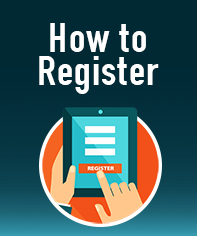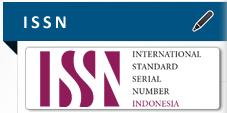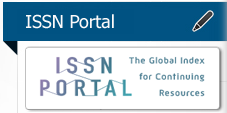PERAN QARYAH THAYYIBAH AISYIYAH POSYANDU BALITA MENINGKATKAN PARTISIPASI KUNJUNGAN IBU BALITA : STUDI KUALITATIF
Abstract
Aisyiyah fights for the rights of men and women where equality of rights is based on ability, regardless of appearance or gender. One of the aisyiyah qaryah thayyibah programs in the health sector is the establishment of a posyandu for toddlers. The purpose of this study is to find out the role of aisyiyah in the formation of qaryah thayyibah in the health sector through the activities of posyandu toddlers. This research is a qualitative phenomenology research. Subject selection using purposive sampling. Data collection using in-depth interviews and observations. An in-depth interview was conducted with the person in charge of the posyandu program, posyandu cadres, and posyandu visitors. Observations were made on the activities of the Posyandu for toddlers. Analyze data using Content Analysis. The results in this study are that QTA posyandu for toddlers was established by PDA Kudus through the Health Council and established in PRA Cendono, the implementation of posyandu once a month on the 13th, the obstacle to the number of cadres has not been maximized. Conclusion of Qaryah Thayyibah Aisyiyah posyandu toddler at PRA Cendono as a form of Aisyiyah's work on maternal and child health. The participation of cadres, infrastructure facilities and funds for the provision of additional food for toddlers is a supporting factor in the implementation of posyandu. The implementation of posyandu in the afternoon increases participation for mothers who have babies because they have free time after work. QTA Posyandu toddlers need to be trained to improve the abilities and skills of cadres and develop to the elderly posyandu adolescents so that Aisyiyah in the health sector pays attention to health from infants to the elderly.
Keywords
Full Text:
PDF (Bahasa Indonesia)References
Adnan, Y. (2022) ‘Pelaksanaan Posyandu di Masa Adaptasi Kebiasaan Baru ( Studi Kualitatif )’, 17, pp. 38–44.
Afifa, I. (2024) ‘Studi Kualitatif Keterlibatan Kader Posyandu Dalam Program Pencegahan Stunting’, 2(1).
Afifa, I. and Setyowati, S. (2023) ‘Pemberdayaan Kader Posyandu Terhadap Kejadian Stunting Pada Balita di Indonesia: Systematic Literature Review’, Jurnal Kesehatan Tambusai, 4(September).
Alamsyah, M. R. et al. (2021) ‘Literature Review: Analisis Posyandu Sebagai Bentuk Implementasi Pemberdayaan Masyarakat’, Prosiding Seminar Nasional STARWARS IKM UM, pp. 72–77.
Alhaqni, Z. P., Auliadin, A. and Rasmuri, P. (2022) ‘Analisis Implementasi Program Posyandu Balita di Wilayah Kerja Puskesmas Gantar Dusun Wagir Analysis Of The Implementation Of The Toddler Posyandu Program in The Working Area Of The Gantar Health Center , Wagir Hamlet’, CENDEKIA: Jurnal Ilmu Sosial Bahasa dan Pendidikan, 2(3).
Febryani, H. N. (2021) ‘Modernisasi dan Penguatan Perekonomian ‘ Aisyiyah Pada Masa Kepemimpinan Siti Baroroh Baried 1965-1985 M’, 1(1), pp. 21–45.
Haris, I. A. and Maulana, O. (2021) ‘Peranan Organisasi Aisyiyah Dalam Pemberdayaan Perempuan di Lampung Selatan’, An Nida, 1, pp. 26–32.
Herryana, W., Rany, N. and Ismainar, H. (2024) ‘Strategi peningkatan cakupan kunjungan balita ke posyandu dengan analisis swot di wilayah kerja puskesmas bagansiapiapi kabupaten rokan’, 5, pp. 1595–1603.
Hidayati, R. W. and Mahmudah, N. (2020) ‘Peran kader Ranting ‘ Aisyiyah Cabang Kota Yogyakarta dalam pemberdayaan masyarakat di bidang kesehatan’, 9(1), pp. 15–22. doi: 10.26714/jk.9.1.2020.15-22.
Kesehatan, K. (2012) ‘Ayo ke POSYANDU’.
Kholisatun, N., Pratiwi, F. R. and Nurhakim, M. (2024) ‘Aisyiyah Dan Pemberdayaan Perempuan Dalam Upaya Kesetaraan Gender’, 2(3), pp. 306–319.
Mardhiyah, A., Wijaya, A. and Roni, F. (2021) ‘Literatur review : Hubungan Motivasi dengan Kinerja Kader Posyandu’, Jurnal Keperawatan, 19(1), pp. 37–46.
Novianti, R., Purnaweni, H. and Subowo, A. (2021) ‘Peran Posyandu Untuk Menangani Stunting Di Desa Medini Kecamatan Undaan Kabupaten Kudus’, Journal Of Public Policy And Management Review, 1, pp. 1–10.
Nugraheni, N. and Malik, A. (2023) ‘Peran Kader Posyandu dalam Mencegah Kasus Stunting di Kelurahan Ngijo Kota Semarang’, Lifelong Education Journal, 3(1).
Nuzula, R. F., Arfan, N. A. and Ningrum, S. (2023) ‘Peran Kader Terhadap Upaya Peningkatan Status Gizi Balita di Posyandu’, 01, pp. 1–4.
Oktavia, N. and Abdullah (2023) ‘Dakwah Bil Hal Aisyiyah Cabang Medan Area Dalam Pemberdayaan Perempuan’, Syntax Literate: Jurnal Ilmiah Indonesia, 8(6).
Prajayanti, H. (2021) ‘Studi Deskriptif Kualitatif tentang Partisipasi Remaja dalam Keikutsertaan Posyandu Remaja storm and stress , karena remaja lingkungan Berdasarkan hasil Survei Kesehatan Berbasis Sekolah di kesehatan pada pelajar usia 12-18 perilaku seksual di mana didapa’, Jurnal Kebidanan Harapan Ibu Pekalongan, 8, pp. 74–82.
R, T. H. N., Setyowati, H. N. and Rosemary, R. (2020) ‘Rumah Gizi ’Aisyiyah: Komunikasi Kesehatan Dengan Pendekatan Agama-Budaya’, Jurnal Komunikasi Global, 9(1).
Rusmalayana, Hafel, M. and Jamal, M. (2023) ‘Analisis Faktor Yang Mempengaruhi Kinerja Posyandu Di Kabupaten Paser Tahun 2021’, Publicuho, 6(1), pp. 139–150.
Syagata, A. S. et al. (2021) ‘Evaluasi pelaksanaan pengukuran tinggi badan oleh kader Posyandu di Wilayah Yogyakarta Evaluation of height measurements implemented by Posyandu Cadre In Yogyakarta’, 17(2), pp. 195–203. doi: 10.31101/jkk.2311.
Widyaningsih, T. S. (2020) ‘Peran Kader Dalam Memotivasi Ibu Balita Yang Berkunjung Ke Posyandu’, 5(1), pp. 1–12.
Zuliyanti, N. I. and Hidayati, U. (2021) ‘Pengaruh Usia dan Insentif terhadap Kinerja Kader Posyandu di Kabupaten Purworejo’, Indonesian Journal of Midwifery, 4(September), pp. 89–93.
DOI: https://doi.org/10.26751/ijb.v8i1.2495
Refbacks
- There are currently no refbacks.
Indonesia Jurnal Kebidanan indexed by
Published by LPPM Universitas Muhammadiyah Kudus
Jl. Ganesha Raya No.I, Purwosari, Kec. Kota Kudus, Kabupaten Kudus, Jawa Tengah 59316
This work is licensed under a Creative Commons Attribution-ShareAlike 4.0 International License.








